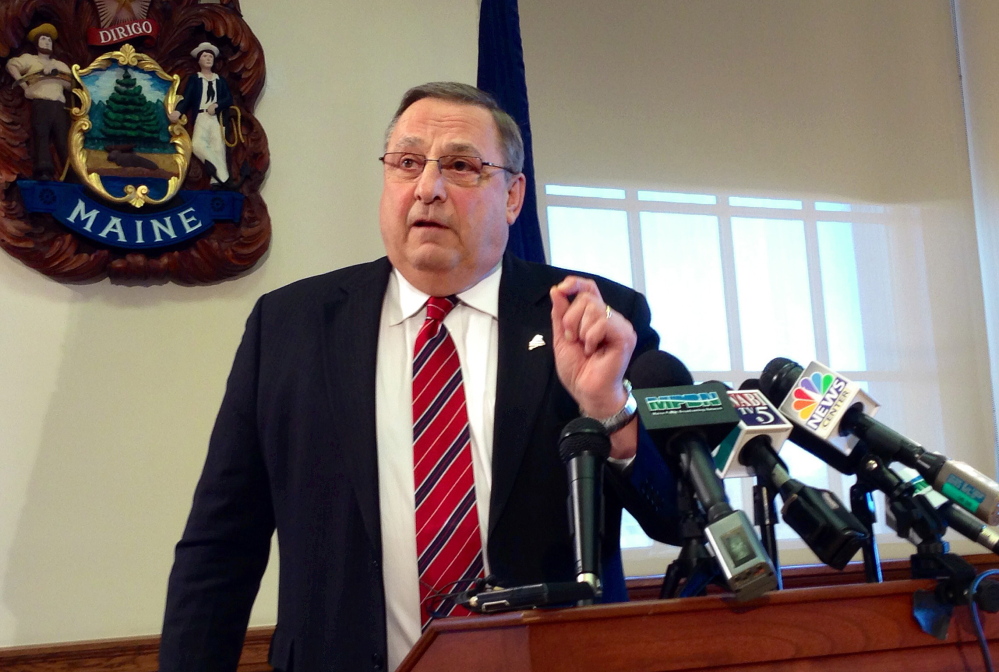Gov. LePage has been throwing around the word “welfare” so freely these days, at times it’s hard to know what he thinks it means.
In a news release issued Wednesday, the governor criticized a study conducted by the federal Bureau of Economic Analysis because it counted as income “personal transfer receipts,” such as Social Security benefits, Medicare payments, Medicaid and state unemployment benefits.
The governor’s own statement quoted him as saying “it is welfare, pure and simple … taking money from hard-working taxpayers and giving it to a growing number of welfare recipients.”
Older residents and the organizations that represent retirees pushed back immediately against the notion that they were not hardworking, taxpaying or deserving of benefits. They were right to resent the suggestion that they might be a drag on a system into which they had paid their entire working lives.
But if he meant that Social Security and Medicare are programs that support public welfare, the governor would be right. That idea is consistent with the preamble to the U.S. Constitution, in which “We the people” are called to “promote the general welfare,” or the Maine Consitution, which lists “our common welfare” as one of the “objects of government.”
Social Security and Medicare are some of the ways in which we agree to take care of each other. There is no meter on the benefits once they have been earned: No seniors will lose their health insurance when their treatment costs climb higher than their total lifetime contribution, and no one’s Social Security check disappears when what’s going out exceeds what went in.
These programs have improved the lives of older Americans immeasurably, and they are rightly treasured and protected by Americans of all ages and across the political spectrum. Like public schools and emergency services, they are “welfare” programs in the true sense of the word – the way it is used in the founding documents of our state and nation.
The LePage communications team quickly doused any hope that the governor meant he was ready to take a more inclusive view on the issue of welfare, however. The governor’s spokeswoman said he was referring only to Medicaid spending, not Social Security or Medicare, when he railed against “welfare, pure and simple.”
But there’s nothing plain or simple about it. When it suits his purposes, the governor refers to practically any government expenditure he doesn’t like as “welfare,” whether it’s a payment to a doctor who treats a disabled child (MaineCare) or to a town government to offset a property tax hike (municipal revene sharing).
The governor continues to insinuate that “welfare” recipients are undeserving, unmotivated cheaters, but common sense would tell you that he’s talking about so many programs that he’s including many of the ones that hardworking, taxpaying Mainers rely on.
As our Founding Fathers knew, “welfare” is not a dirty word. The governor should think about what it really means before the next time he throws it around.
Send questions/comments to the editors.



Success. Please wait for the page to reload. If the page does not reload within 5 seconds, please refresh the page.
Enter your email and password to access comments.
Hi, to comment on stories you must . This profile is in addition to your subscription and website login.
Already have a commenting profile? .
Invalid username/password.
Please check your email to confirm and complete your registration.
Only subscribers are eligible to post comments. Please subscribe or login first for digital access. Here’s why.
Use the form below to reset your password. When you've submitted your account email, we will send an email with a reset code.